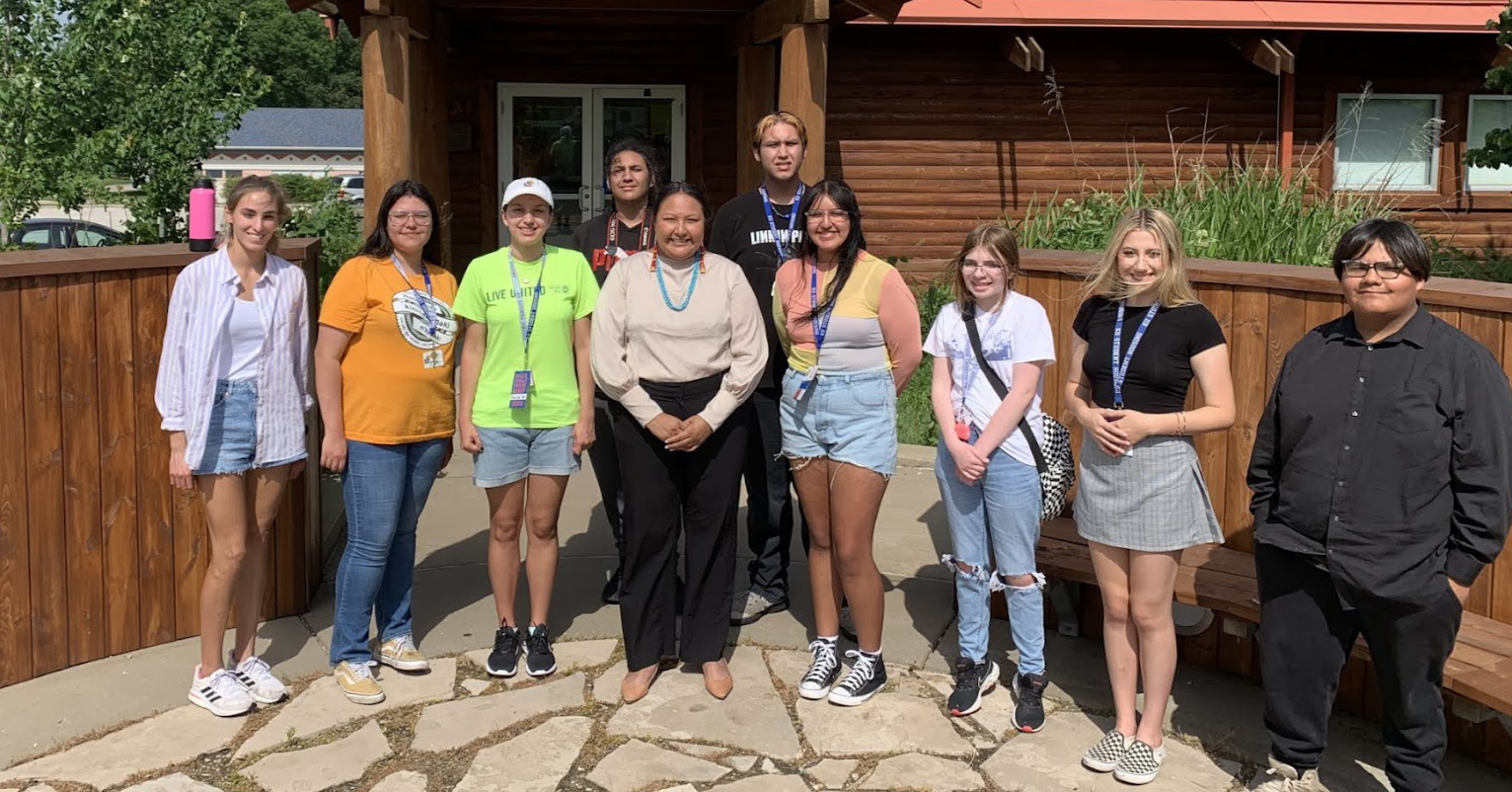
- Details
- By Georgia Blackwood and Karen Middleton
On June 15, nine students at the Native Storytelling Workshop took part in a visit to Haskell Indian Nations University. The shuttle transported the group from University of Kansas’s Stauffer-Flint Hall to the Haskell Cultural Center and Museum. Students took in the environment of the wild flowers in front of the building and the atmosphere of welcoming faculty.
Students had the opportunity to visit and interview with Kansas State Representative Christina Haswood. Rep. Haswood shared insight on what it’s like to be a young Native woman in Kansas politics and shared her advice with the students. She encouraged the students to get involved with local politics and to embrace their Native identity as they continue to progress further in life.
This article was produced in collaboration with the Native Storytelling Workshop at the University of Kansas.
“It felt good to meet an involved state-level native politician,” Lucius Ridge, a workshop participant, said. “Representation matters.”
After saying goodbye to Representative Haswood, students then made their way into the Cultural Center. Once inside, they were immediately greeted by the welcoming face of Travis Campbell. Campbell serves as the property specialist for the museum and is an alumni of the University. Campbell was quick to welcome the students to the museum and explain the deep-rooted history of the University. He explained in detail the creation of Haskell boarding school and the conditions in which the students lived. The students heard stories from history that they probably wouldn’t have heard anywhere else.
“After walking around the campus I felt like it was a welcoming community,” Karen Middleton, a member of the workshop, said at the end of the visit. “The prospect of being around other Native students is also a reason why I could see myself going to Haskell.”
Georgia Blackwell, Kickapoo Tribe of Kansas, Prairie Potawatomi Tribe of Kansas, and Cherokee Tribe of Oklahoma, is from Kansas. She enjoys writing and playing her viola; she loves working with other Natives and journaling at the Native Storytelling Workshop.
Karen Middleton is (Kickapoo Tribe of Kansas), who photographed this piece, is from Kansas. She enjoys making content and says the Native Storytelling Workshop offers a way to learn more about Native journalism and how podcasts are made.
Help us defend tribal sovereignty.
At Native News Online, our mission is rooted in telling the stories that strengthen sovereignty and uplift Indigenous voices — not just at year’s end, but every single day.
Because of your generosity last year, we were able to keep our reporters on the ground in tribal communities, at national gatherings and in the halls of Congress — covering the issues that matter most to Indian Country: sovereignty, culture, education, health and economic opportunity.
That support sustained us through a tough year in 2025. Now, as we look to the year ahead, we need your help right now to ensure warrior journalism remains strong — reporting that defends tribal sovereignty, amplifies Native truth, and holds power accountable.
 The stakes couldn't be higher. Your support keeps Native voices heard, Native stories told and Native sovereignty defended.
The stakes couldn't be higher. Your support keeps Native voices heard, Native stories told and Native sovereignty defended.
Stand with Warrior Journalism today.
Levi Rickert (Potawatomi), Editor & Publisher
